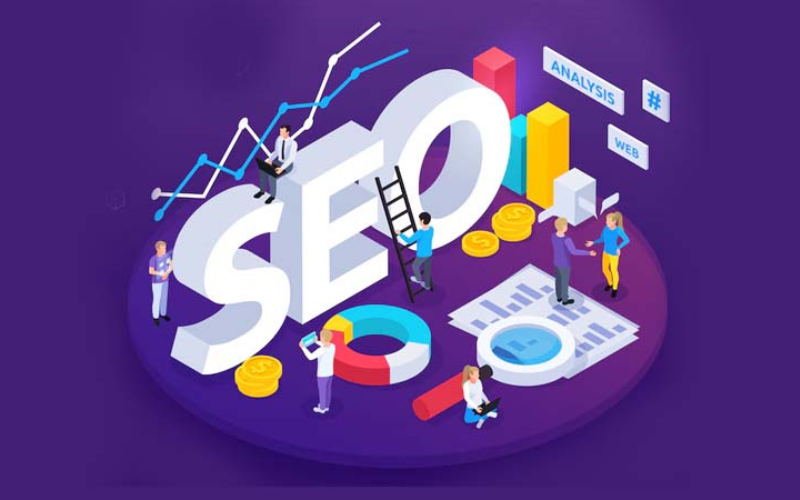In the ever-evolving digital landscape, e-commerce businesses often face the common dilemma: should they focus on on-page SEO or link building? The world of SEO is a competitive one, full of different theories and practices. However, for an e-commerce site to be up to par, it needs to gain prominence in search results.
The purpose of this article is to clarify this dilemma, reveal the specific advantages of on-page SEO and link-building strategies and assist you in finding the right balance for your Internet-based business.
Therefore, even if you use services of the best ecommerce SEO company, it is necessary to explore the basics of on-page SEO and link-building techniques. The bottom-line is that, On-page and link-building follow the same pattern but serve different purposes. These both are important for an all-rounded SEO strategy.
What is On-Page SEO?
On-page SEO denotes standardization on single web pages to improve their rank, draw appropriate traffic from search engines such as Google. This includes optimizing the content, images and also HTML source code of your website in order to make it more straightforward for users as well as search engine spiders.
On-Page SEO key elements are keyword research, title tags, meta description, URL structure; internal linking, image alt tags and site speed optimization. Such elements make your website user-friendly and, at the same time, accessible by search engines. Below are the below benefits of on-page SEO:
Improved user experience:
SEO factors such as improving site speed and structure are considered to be on-page techniques that can improve the user experience, leading to longer visits and higher conversion rates.
Higher search engine ranking:
This effort enables your website to be visible in search engines’ result pages (SERPs) through implementing on page SEO strategies. These search engines are likely to make your website visible in their results because they not only understand what it is about but also relate with a user’s query. If you don’t have an in-house team, one should opt for e-commerce SEO packages that include the on-page SEO.
Long-term impact:
If it is done in the right manner, on-page SEO effects are long term. Despite that, once your pages are perfect for the web, they will always be on top as long as they remain relevant and useful to users. On the other hand, on-page SEO can also lay a good foundation for future SEO strategies which allows you to retain and improve your search engine ranking.
What is Link Building?
Link building involves getting external links pointing to your site from other websites. These links serve as votes of confidence for your site, telling search engines that it is considered worthwhile and credible. Link building is also important for SEO because it assists the search engines in establishing the authority and relevance of a webpage.
One can use guest blogging, directory submission, social bookmarking and influencer outreach as types of link building strategies. In every strategy, the processes are characterized by “link building” where one gets external links to their site.
Increased website visibility:
Through link building, you can increase the visibility of your website by having it appear in other approved websites. It can redirect more people to your site and result in increased conversions.
Faster indexing:
As search engines crawl through the web, they carry with them a trail of links from one page to another. The more external links you have that refer to your web pages, search engine bots find and index them quicker.
On-Page SEO vs. Link Building: Finding a Balance
So who wins the e-commerce on page SEO and link building battle? The fact is that the two are integral parts of any good digital marketing plan.
On one hand, on-page SEO makes your website appear more appealing to users and useful while link building works towards making search engines recognize the credibility of your site. Thus, a good balance between the two is of high importance. Below are some of the ways to balance both the techniques and bring the best out of them:
Prioritize Quality Content:
In on-page SEO and link building, success is only possible by providing quality content. Quality and relevant content enhances user experience as well as increases the number of links from outside.
Optimize On-Page Elements:
While link building forms a critical component of off-page optimization, on-page aspects should not be ignored. In order to enhance search engine visibility, ensure that title tags, meta descriptions, headers and other on-page elements are optimized with relevant keywords.
Build Relationships with Influencers:
Link building as an effective e-commerce and influencer outreach strategy. Partnering with influencers in your industry not only gets you exposed to more of their audience, but also nets you the ever invaluable backlinks.
Utilize Guest Posting:
Additionally, you can post as a guest on high-quality websites to improve your website’s visibility and get some good backlinks. Nevertheless, find appropriate and trusted sites for guest posting that will result in a “clean” link profile.
Monitor and Update Your Link Profile Regularly:
You should always ensure that your link profile for websites are updated regularly. Ensure you remove all low quality and spammy links that may damage your search engine rating. Besides, keep on growing outstanding links over a period and have a good link profile.
To summarize, on-page SEO and link building are essential factors that lead to successful business in e-commerce. On-page optimization improves your site’s visibility in search engines whereas link building increases your website’s authority and attracts more organic traffic.
Prioritizing quality content, optimizing your on page parameters, building relationships with influencers, using guest blogging as well as monitoring and reworking of one’s link portfolio are some of the strategies one needs to adopt for striking balance in on-page SEO and link building strategy.
Using them appropriately will make it possible for your e-biz to have a powerful presence on the internet and convert more visitors into clients. Both approaches complement each other and could result in a sustainable advantage for companies operating in the competitive realm of e-commerce.





fantástico este conteúdo. Gostei bastante. Aproveitem e vejam este site. informações, novidades e muito mais. Não deixem de acessar para saber mais. Obrigado a todos e até a próxima. 🙂